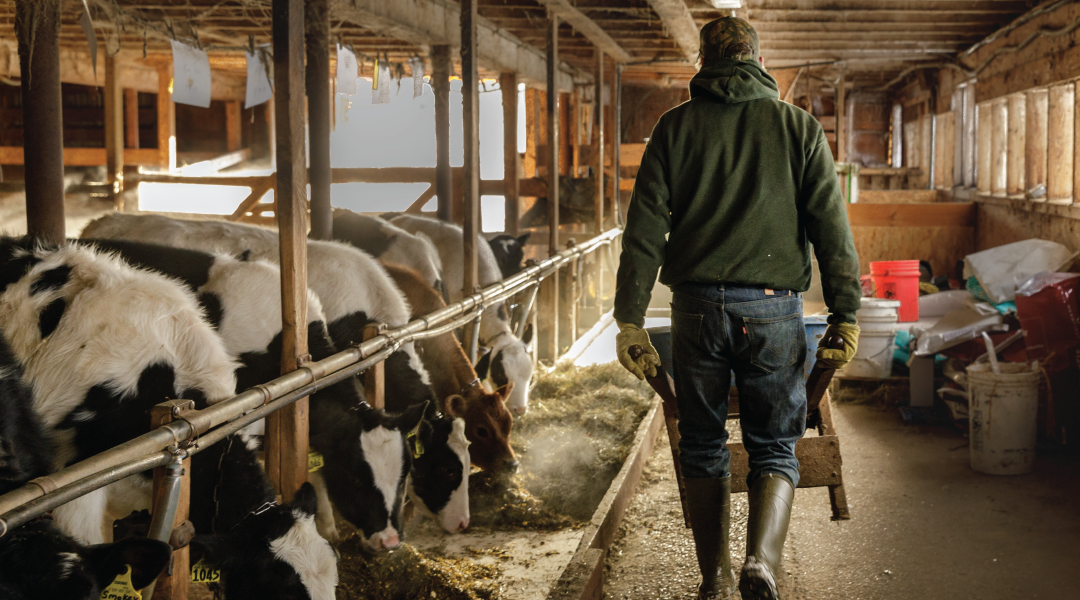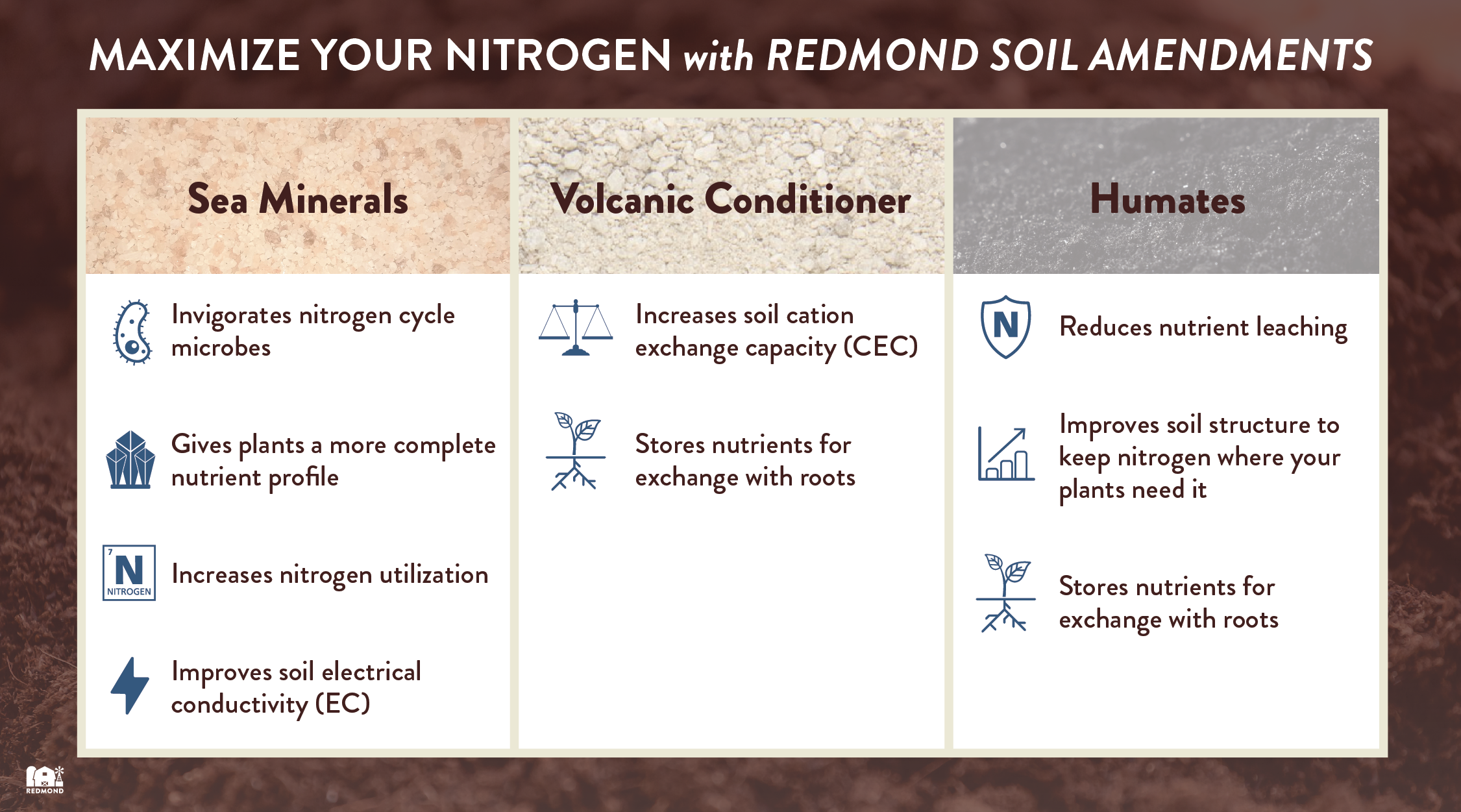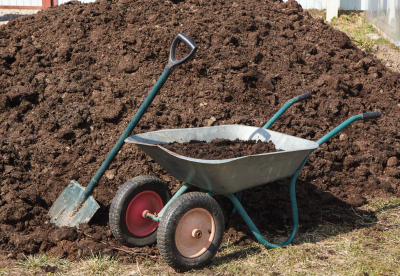Benefits of Using Manure as Fertilizer
Manure is a rich source of organic matter and is extremely beneficial for growing operations of all sizes:
- Provides a food source for soil microbes
- Increases soil biological diversity
- Accelerates the breakdown of nutrients into forms that plants can use
- Creates a cyclical ecosystem on your own land
- Improves soil structure for both sandy and clay soils
- Grows healthier and more nutrient dense plants
- Reduces the need to apply additional fertilizers
- Offsets rising costs during a fertilizer shortage
- Here are some more tips on getting your garden through a fertilizer shortage
How to Use Animal Manure As Fertilizer
Whether you use manure from your own animals or trade and purchase from others, there are a couple of ground rules to know. First, you should only use manure from herbivores in your garden (look below for species specific instructions). Never use cat or dog waste in your compost (see below to learn more about what cautions to take with pig manure). Second, any manure you use (whether purchased or collected from your own animals) must be properly composted before use.
Composting
Raw manure contains more than just fecal matter but also undigested food and seeds, bedding materials, feathers and hair, urine, and so on. Manure should be composted and aged to kill disease causing pathogens, prevent ammonia burn damage to your plants, destroy weed seeds, and stabilize macro and micro nutrients for a slower-long term release into your soil. Thermal composting (that reaches 135° - 160° F) creates an unfavorable environment for disease causing pathogens and weed seeds and prevents them from reproducing so they die off.
- Rabbit manure does not need to be composted (see Rabbits below)
- Manure is part of the “brown matter” ingredients of composting and should be combined with green matter, water, and exposed to oxygen.
- Watch the video below to learn more from our friends over at Homesteading Family on how to set up your composting station.
Storage/Handling
To reduce risk to humans and pets, proper handling and precautions are necessary.
- Stockpiled manure should be kept in an area away from food and water sources, kids, and animals.
- Watch for liquid runoff (manure and compost should not be so wet that runoff is pooling and getting into edible plants or children’s play areas.
- Try and keep a dedicated set of tools for manure stockpiles and raw compost. Once compost is properly matured, there is no risk of cross contamination.
Application
Here are some manure compost application tips from the University of Wisconsin Ag Extension:
- “If you are growing crops where the edible portion is in contact with the soil (such as carrots, beets, or potatoes) fresh manure applications should be made at least four months prior to harvest.”
- “On other edible crops, fresh manure applications should be made at least three months prior to harvest. With just a four month or so growing season, this means you should only apply fresh manure in the fall; not in the spring or during the growing season to any area that is or will be planted with food crops.”
- “Whether composted or aged, manure should be applied no later than 90 days prior to harvest of non-ground-contact crops such as trellised tomatoes, cucumbers and peppers; and no later than 120 days prior to harvest of ground-contact crops such as lettuce, strawberries and carrots.”
Different Species and Their Manure
Here are a few extra things to know about different livestock species and their manure.

Chickens/Poultry
- Even though chickens are not strict vegetarians and eat some animal based protein, the quantities eaten and the way they digest their food enable gardeners to use their manure when properly composted
- Chicken and poultry manure are higher in nitrogen, potassium, phosphorus and calcium than other manures
- Salts in fresh poultry manure also tend to be higher than other manures
Sheep/Goats
- Sheep and goat manure is drier and easier to use than that from cows and chickens
- Higher in nitrogen and potassium than horse manure
- More likely to contain weed seeds than chicken manure (thermal composting will help kill weed seeds)
Cattle
- A great all-purpose fertilizer that is lower in nitrogen and a more balanced nutrient profile
- Cattle rumen digest food more thoroughly so very few undigested seeds pass through
Horses
- Horse manure may contain a lot of undigested and viable weed seeds
- Not as high in nutrients as other manure
Rabbits
- Fresh rabbit manure can be used straight from the hutch without composting
- Can be mixed into soil or applied as a top dressing without worry of plant burn
- Can contain more nutrients than cow, horse, and chicken manure
- Higher in nitrogen than sheep, goat, chicken, cow or horse manure
Pigs (Caution)
- You should only use pig manure if they have been fed a strictly vegetarian diet and their waste has been adequately composted.
Nourish Soil Health with Redmond Minerals
Since the 1950s, Redmond Minerals has been proud to support growing operations of all sizes with our rich deposit in central Utah. Our Mineralyte soil amendments help spark your soil's ecosystem to life and store the nutrients your plants need to thrive. Redmond Mineralyte contains whole ingredients, direct from nature: ancient sea minerals, volcanic ash, and bio-available humates. This unique blend can be used with your composted manure program to grow healthier, more nutrient dense crops.

Through lean and lush times, our soil products have helped growers increase plant yields, enjoy more nutrient dense crops, and provide sustainable soil health. Call us today at  to see how we can help your growing ambitions!
to see how we can help your growing ambitions!
© 2024 Redmond Minerals Inc.

